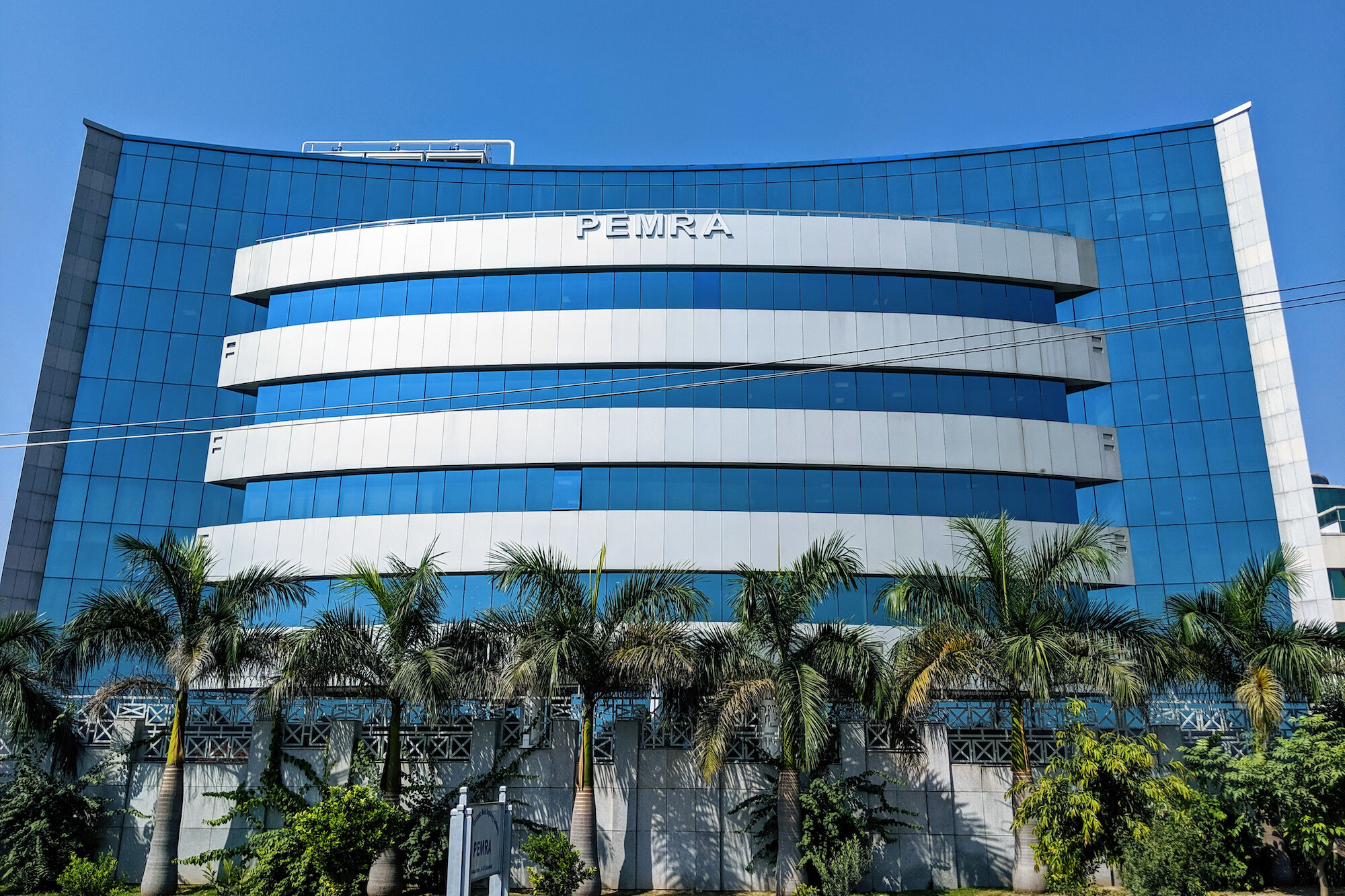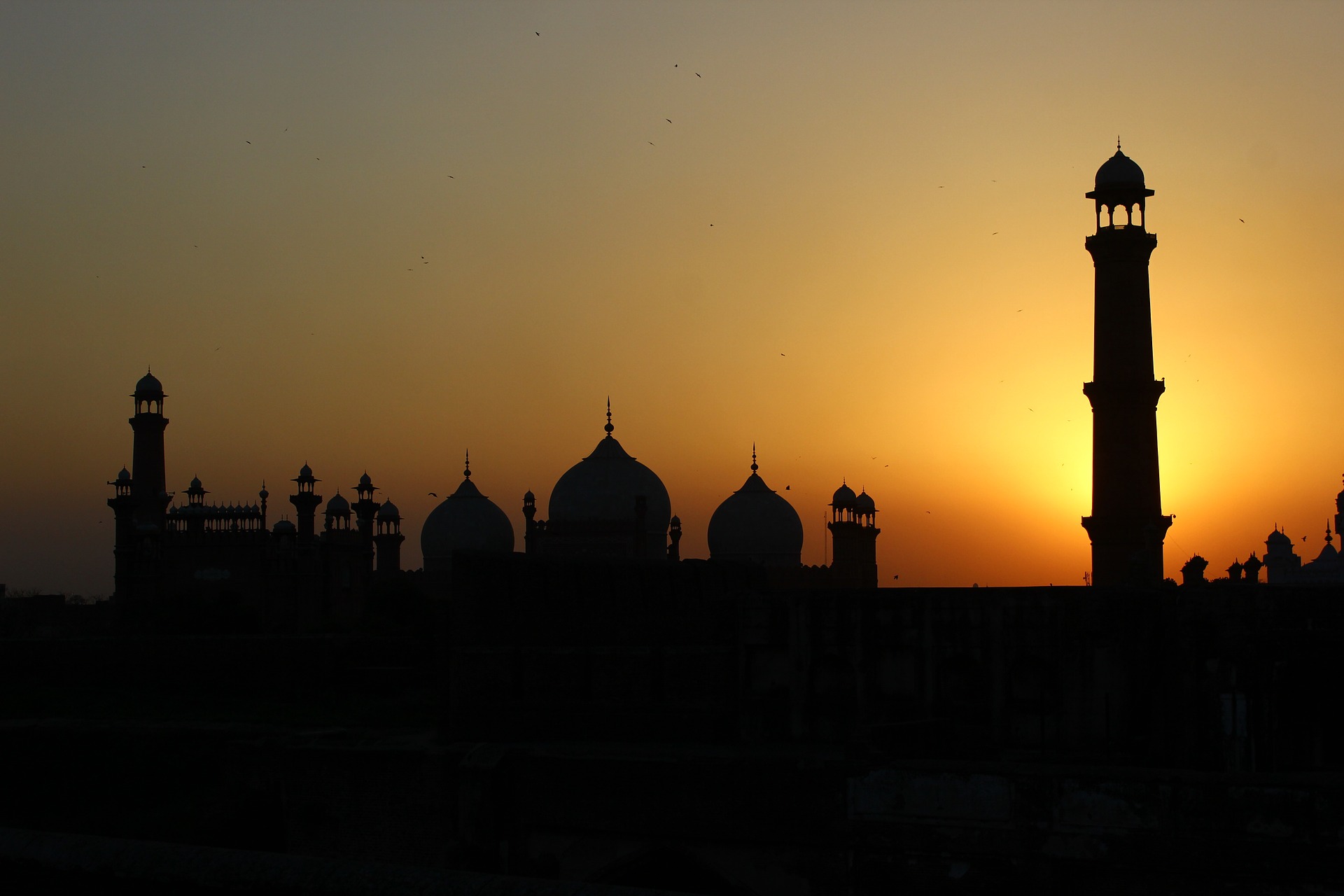Media workers in Pakistan continue to voice their concerns over a proposed bill that could grant the state greater control over the media.
On 12-13 September, journalists staged a protest outside Parliament House in Islamabad to call on the government to withdraw a proposed bill that seeks to further clamp down on independent media. Several groups associated with the Pakistan Federal Union of Journalists (PFUJ) organised the protest. They were joined by opposition parties, civil society actors and the country’s former Prime Minister.
The proposed bill seeks to replace all existing media laws and place all types of media, including digital media, under a new, all-encompassing regulating body – the Pakistan Media Development Authority (PMDA). Unlike more robust media regulators, for which independence is integral, the Authority would have strong ties to the government: the government would have control over the appointments and removals process, and other bureaucrats would hold key positions. Media tribunals would also be set up under the facade of supporting the rights of journalists, which Geo warns ‘are the most dangerous [parts] of the PMDA.’
“While journalism is becoming more independent worldwide, the opposite is happening in Pakistan,” says Abbasi
Read more: https://t.co/5plbq4uric#GeoNews
— Geo English (@geonews_english) September 12, 2021
Many media freedom advocates and journalist bodies do not see a practical purpose for introducing a new wide-sweeping regulatory body, and consider it as yet another attempt to curtail the independence of media under the guise of addressing ‘fake news’ and unregulated platforms. According to Dawn, the former information minister, Supreme Court Bar Association and the Human Rights Commission of Pakistan have all expressed their support for journalists and condemned the proposed Authority.
Other international media and journalist associations have also joined in solidarity against the proposed bill and are calling for more transparency among stakeholders. IPI’s Deputy Director Scott Griffen said that the organisation “urgently repeats its call on the Pakistani government and lawmakers to reject this bill”, but that “if regulatory changes are needed, they must be developed in close cooperation with media representatives and civil society and must reflect international standards on freedom of expression.”
Last week, a Joint Action Committee was formed, consisting of government and media representatives that would purportedly open discussions about the PMDA and media regulation. But as the PFUJ emphasises, ‘The entire Action Committee including [the] PFUJ representative had made it very clear to the information minister that we will not accept any umbrella body like the PMDA and we will only sit with the government to strengthen the existing laws… The press release issued after the meeting is also very clear and it says the stakeholders told the minister that the PMDA is also unacceptable.’ Following a three-day meeting that took place last week to discuss future strategies against the proposed legislation, the PFUJ announced a countrywide march that will take place in November.
Owais Aslam Ali, Secretary General of the Pakistan Press Foundation (PPF), told PMA that the PPF is “strongly opposed” to the law and warned that it would “change the fundamental character of Pakistan… from the media taking on the role as a watchdog, to serving those in control, and that is not the role of the media.” He also referred to the costly fines that journalists and media organisations could receive if they did not toe the line.
Ali suggested that the new Action Committee needs to do two things. First, “to look into if there is a need for an amalgamation of all the media laws into one.” And second, “to look into the concerns of the government, such as fake news, and find a reasonable solution.” He added that, while this has been a concerning issue for media organisations and journalists, he believes that the proposed law has “united everyone” in that “stakeholders have been standing up to the government” and acknowledged how the “international community has also been involved”. By this virtue, it demonstrates to Ali how press freedom is still fundamentally important to Pakistan and for this reason, he is “really confident that the law will not see the light of day.”
“We are strongly opposed to the law… it would change the fundamental character of Pakistan… from the media taking on the role as a watchdog, to serving those in control, and that is not the role of the media.” – Owais Aslam Ali, Secretary General of the Pakistan Press Foundation (PPF)
In other media freedom news, the latest reports on Mir Shakil-ur-Rahman, reveal that his dismissal applications have been rejected by the accountability court. MSR, Editor-in-chief and owner of Geo and the Jang Media Group, has been facing an ongoing court proceeding for a 30-year-old land dispute. According to Bol News, ‘sufficient material is available against accused Mir Shakil and others’, and ‘the prosecution should be given an opportunity to complete the trial.’
Header Image: Islamabad, Pakistan: The facade of the building of Pakistan Electronic Media Regulatory Authority (PEMRA). Credit: Waleeds / Shutterstock.com
Related Posts
16th August 2021
New regulator could further restrict media freedom in Pakistan
While PMA welcomes comments that…
11th June 2021
PSM regulation: How public media can keep themselves in check
Internal regulatory mechanisms can be…
27th January 2021
Pakistan: Serious concerns for journalist safety and editorial independence
Attacks on journalists and threats to…



